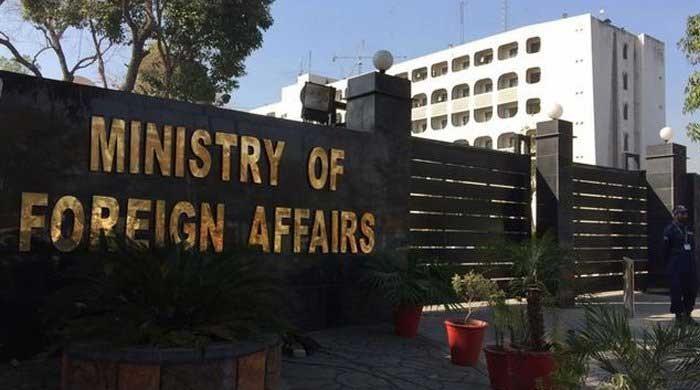Iran conflict: Pakistan advises citizens to 'exercise maximum caution' while travelling to Iraq
 FM Qureshi calls for dialogue, urges UNSC to play its part in de-escalating tensions; Gen Bajwa offers counsel to US Secretary of Defence. Photo: File
FM Qureshi calls for dialogue, urges UNSC to play its part in de-escalating tensions; Gen Bajwa offers counsel to US Secretary of Defence. Photo: File
Pakistan on Wednesday advised citizens travelling to Iraq to “exercise maximum caution” while planning their visit to the country, after Iran fired missiles at Iraqi bases used by the US military.
Foreign Office Spokesperson Aisha Farooqui tweeted that the decision was taken “in view of recent developments and prevailing security situation in the region”.
“Those already in Iraq are advised to remain in close contact with Pakistan Embassy in Baghdad,” said the spokesperson.
Qureshi calls for dialogueForeign Minister Shah Mehmood Qureshi earlier today called for United States (US) and Iran to hold dialogue and urged the United Nations Security Council (UNSC) to play its part in de-escalating tensions between Tehran and Washington.
“Use of power will only make matters worse,” Qureshi said while speaking to Geo Pakistan. “To settle matters, UNSC should play its part.”
The foreign minister added that Pakistan wants peace in the region and that the issue should be solved through dialogue.
“There is an entire group of people in the US who do not want to go to war [with Iran],” Qureshi said.
The statements came after Iran attacked Iraqi bases used by the US military on Tuesday night, in what US officials in Washington and Tehran said was the first act of the Islamic republic's promised revenge for the US killing of a top Iranian general Qasem Soleimani.
Read also: Iran fires multiple missiles at US troop bases in Iraq
“There were no reports of casualties according to initial reports,” Qureshi said. “The Iranian foreign minister has also said he does not seek escalation or war.”
COAS offers counsel to US defence secretaryChief of the Army Staff (COAS) General Qamar Javed Bajwa on Tuesday "offered sound counsel" to US Defence Secretary Mark Esper on US-Iran tensions.
Esper tweeted that he always "appreciates" speaking with US partners and allies in the region, and reiterated that everyone seeks de-escalation of tensions with Iran.
The Pentagon chief clarified that Washington "does not seek conflict," however, he warned that US will respond "forcefully if necessary".
"Afghan President Ashraf Ghani and Pakistani General Bajwa both offered sound counsel and advice in calls today," said Esper.
Read also: US President Trump says 'all is well' after Zarif tweets Iran targeted base in 'self-defense'
Trump says 'all is well'Trump on Tuesday confirmed that Iran had carried out missile strikes on a US base in Iraq. The US president said that an assessment of the casualties and damages was taking places and a statement would be made early Wednesday.
"All is well! Missiles launched from Iran at two military bases located in Iraq. Assessment of casualties and damages taking place now. So far, so good! We have the most powerful and well equipped military anywhere in the world, by far! I will be making a statement tomorrow morning," he tweeted.
The statement came after Iranian Foreign Minister Javad Zarif said Iran had taken measures in self-defense under Article 51 of the UN Charter. Zarif cautioned that Iran did not seek escalation or war, but would defend itself against aggression.
Read also: Iran and 'free nations of region' to avenge general's killing: Rouhani
"Iran took and concluded proportionate measures in self-defence under Article 51 of UN Charter targeting base from which cowardly armed attack against our citizens and senior officials were launched. We do not seek escalation or war, but will defend ourselves against any aggression," Zarif had tweeted.


Post a Comment